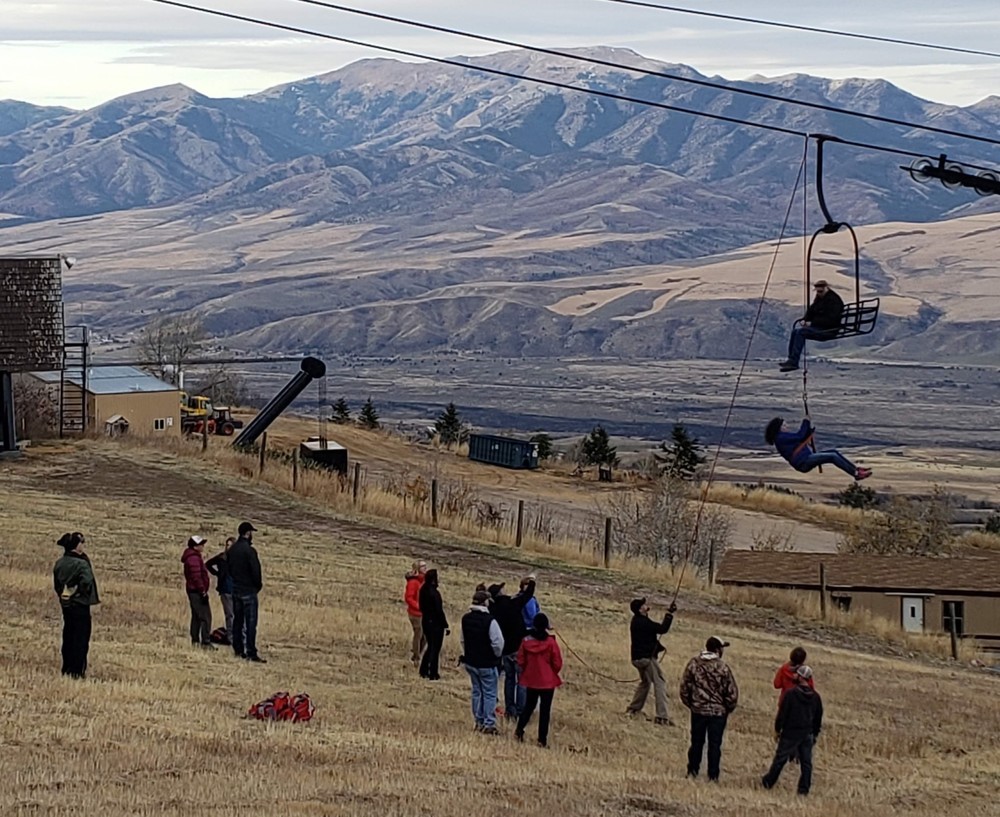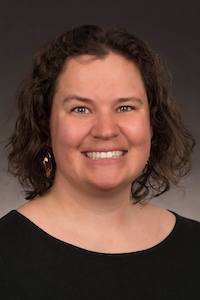Wilderness medicine at Idaho State University
November 8, 2019

Preparing physicians for unexpected emergencies in isolated areas means happier and healthier communities, and doctors
In Idaho and other primarily rural states, rural physicians often render first aid to friends, family and strangers met upon the trails they travel outside the office. Resident physicians at Idaho State University’s Family Medicine Residency Program can now become even more equipped for these situations when they arise, with a new specialized training opportunity in the area of wilderness medicine.
The Family Medicine Residency Program at ISU prepares postgraduate physicians to practice independently. Residents practice under the direct supervision of a physician for three years, and are then ready to practice on their own. The first year of the typical residency curriculum at ISU is “front loaded,” according to program professors, which means “the residents are busy doing all sorts of things such as delivering babies, performing C-sections, and taking care of people in the hospital.” The second and third year, however, residents can choose some of the elective courses that really interest them, such as wilderness medicine or surgical obstetrics.
 Thanks to A.J. Weinhold, a new clinical associate professor in the residency program, a new elective choice that is offered for residents at ISU is wilderness medicine. At the end of their first year residents can apply for this area of concentration, which provides specialized training for treating injuries and emergencies that occur in remote areas. Stabilizing patients and preparing them for transport to a clinic or hospital are among the most common treatments and residents are trained how to do so in isolated areas, often with limited medical supplies.
Thanks to A.J. Weinhold, a new clinical associate professor in the residency program, a new elective choice that is offered for residents at ISU is wilderness medicine. At the end of their first year residents can apply for this area of concentration, which provides specialized training for treating injuries and emergencies that occur in remote areas. Stabilizing patients and preparing them for transport to a clinic or hospital are among the most common treatments and residents are trained how to do so in isolated areas, often with limited medical supplies.
What is the impact of Wilderness Medicine trained physicians in the Pocatello community and beyond? “This program shows residents that there are ways, outside of a hospital setting, where you can use your training while you are doing the things you love as well. If they choose this concentration it allows them to get out and create relationships with and ultimately make a difference in the lives of community members not only just in Pocatello but all the other communities that they will live in after,” Weinhold said.
ISU residents that choose the Wilderness Medicine concentration are also required to volunteer in the community with Ski Patrol, Search and Rescue, or providing first aid for outdoor events. Weinhold, who is the medical director for the Pebble Creek Ski Patrol, said she is pleased to be able to get the residents connected with the community through the ski patrol. This allows the residents to get hands-on training there as well as help ski patrol have more help and more people who have that extra training on top of the ski patrol training.
“As ISU’s residents complete their training, they will have learned a lot about wilderness medicine, how to apply it in the real world and to the next communities where they decide to live, work and play,” Weinhold said.
She added, “Doctors have some of the highest suicide rates in the country and by opening up these different areas of concentration it allows doctors to also focus on things that make them happy and healthier which in turn makes the community happier and healthier.”
Weinhold says she is excited to see positive changes and the beneficial impacts this area of concentration will have for both the residents ISU and for the community of Pocatello as a whole.
The Wilderness Medical Society has accredited ISU’s Wilderness Medicine program, which means that while residents work towards this concentration, they can also work on a fellowship with the Wilderness Medical Society. To achieve fellowship status, a person has to have 100 credit hours working in wilderness medicine. ISU helps their residents get more than 50 percent of these required credits by the time they are done with their residency.
To earn these credits residents complete tasks and training modules in a multitude of topic areas. Residents working toward the wilderness medicine area of concentration also attend a Wilderness Medicine Society conference. This year there is a winter conference in Sun Valley. The residents also have to do a 16-hour wilderness first-aid course, which is offered by NOLS Wilderness Medicine or Advanced Wilderness Life Support.
“In 2018 there were about 12 such classes within driving distance from Pocatello, so it makes it a little bit easier for residents to obtain those hours,” Weinhold said.
ISU has also created a lecture series accredited by Wilderness Medical Society. Residents in the wilderness medicine track are not only required to attend these lectures, but also teach them.
Since its creation 25 years ago, the ISU Family Medicine Residency has graduated 137 physicians, half of whom are now practicing in Idaho. These graduates provide care for 120,000 Idahoans, and now a few more – when they are able to render care on a trail or mountainside, not just in a clinic or hospital.
Categories:
